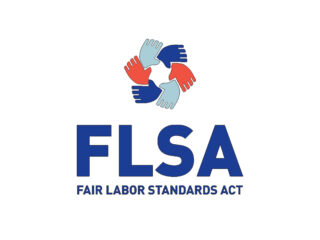

Seyfarth Synopsis: FLSA practitioners long have been aware that most courts hold that purely private releases of FLSA claims are void, and that a release of an FLSA claim is valid only if approved by the Department of Labor or a court. A few courts have gone a step further and prohibited parties from voluntarily dismissing an FLSA claim without approval from a court. But a federal judge in the Eastern District of Pennsylvania last week persuasively explained why those courts have gone too far.
Following a familiar script, two plaintiffs in Byron Alcantara v. Duran Landscaping, Inc., sued their employer alleging that they were not paid for all overtime hours they worked. A few months later, and before any conditional certification motion was filed, the parties settled the case. They informed the court and, because the case included an FLSA claim, asked District Court Judge Joshua D. Wolson of the Eastern District of Pennsylvania to approve the settlement in a telephonic hearing. But rather than provide oral approval, Judge Wolson told the parties that they do not necessarily need it.
Judge Wolson advised the parties that they could take one of two paths. They could seek and brief court approval of their settlement, which would ensure that the waiver of FLSA claims would be valid against any future claims, or they could opt to voluntarily dismiss the case under Federal Rule of Civil Procedure 41(a)(1)(A), without having to explain to the court why the settlement is fair and reasonable and, critically, without having to publicly file their settlement terms.
Judge Wolson reasoned that he and other judges do not necessarily know what is best for the parties and therefore judges do not need to approve settlements in order for FLSA cases to be resolved. In a display of judicial modesty, Judge Wolson explained that the purpose of court-approval for FLSA settlements is to ensure that settlements are fair and reasonable. But “in reality,” the Court stated,
those plaintiff-employees, represented by able counsel, are equipped to make that decision for themselves. And the “help” that we courts offer—a settlement approval process—drives up litigation costs in small-value cases, makes settlement more difficult, and delays the disbursement of unpaid wages to FLSA plaintiffs. Nor is it clear that the help that courts offer is worth all that much. Most of the time, courts have very little to add to the settlements that parties present. Sometimes we nibble around the edges, modifying confidentiality provisions or making other minor changes. But rarely does this procedural burden yield anything of value to the parties trying to settle.
The Court relied on the plain language of Fed. R. Civ. P. 41(a)(1)(A) to nix the court-approval requirement. That rule, the Court stated, allows the parties “to dismiss their claims at any time, and without court action” and “gives effect to the bedrock principle of American courts that public policy favors private settlements of civil litigation.” Specially, Rule 41(a)(1)(A) permits a plaintiff to dismiss a case voluntarily, without a court order, with the exception of cases that are “[s]ubject to Rule 23(e), 23.1(c), 23.2, and 66 and any applicable federal statute.” These rules do not apply to individual FLSA actions, so parties to those cases can dismiss their claims voluntarily, without a court order, unless the FLSA is an “applicable federal statute.” The Court found, based on the plain language of the FLSA, that it is not. The FLSA includes a private right of action against any “employer who violates” the statute. The FLSA also permits the DOL to file an FLSA case and administer a settlement. Neither provision, according to the Court, requires a court to approve a settlement between an individual plaintiff and an employer.
The Court rejected the argument that Section 216(c) of the FLSA and the Portal-to-Portal Act render the FLSA an applicable federal statute under Rule 41. First, it found that, while Section 216(c) gives the DOL the power to file FLSA actions and then to supervise the payment of unpaid wages under the statute, Congress did not include any similar provision in Section 216(b), which authorizes private lawsuits under the FLSA. The Court therefore would not assume that Congress also meant to require judicial approval of private settlements. Second, the Court found that the Portal-to-Portal Act structure or language does not suggest that Congress intended to place the FLSA within the scope of an “applicable federal statute” under Rule 41 or otherwise to restrict the compromise of individual FLSA actions.
Judge Wolson acknowledged the Second Circuit’s contrary authority in Cheeks v. Freeport Pancake House, Inc., which held that the FLSA is an “applicable statute” under Rule 41 and that, therefore, judicial approval of a settlement is required to obtain dismissal of an FLSA case. But Judge Wolson politely criticized Cheeks for failing to base its decision on the text of Rule 41 and instead resting on “unique policy considerations underlying the FLSA,” including “highly restrictive confidentiality provisions,” overbroad releases of FLSA claims, and too-high attorney’s fees in their settlements. He also highlighted strong policy considerations which weigh against requiring courts to approve FLSA settlements:
So the question remains, should employers seek approval of individual settlements? It depends. On certain facts, in which seeking judicial approval may provide public information that will encourage litigation, it may make sense not to. See To Seek Or Not To Seek (Court Approval)? THAT Is The Question. It also depends on the jurisdiction; as the opinion noted, some courts require approval. Ultimately, if an employer settles an FLSA case without DOL or court approval, it runs the risk that a judge might later hold some or all of the release invalid because it is not a fair, reasonable, and involved a bona fide dispute. But there is nothing that prevents a court from approving a settlement if the parties request it.